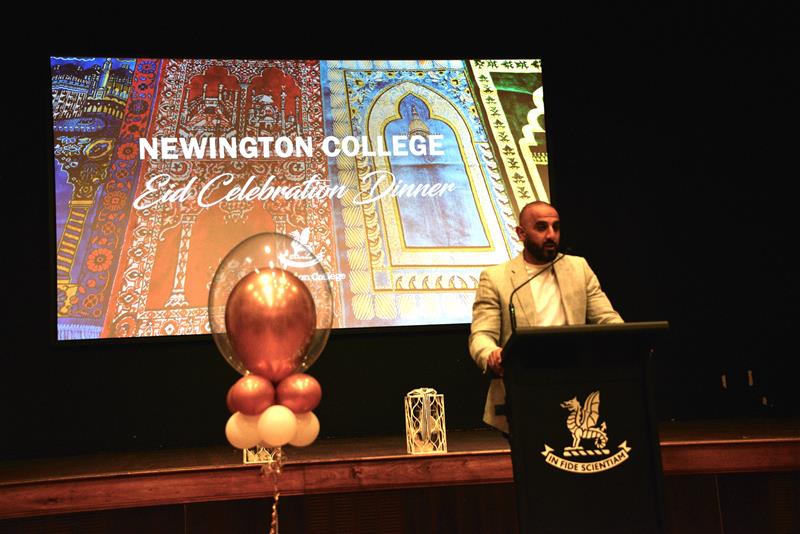Advice from the Experts
There is a lot to look forward to in Term 4. It is getting warm again and there are holidays not too far away, but for many boys their eyes are on the challenges that are lying in between.
Years 7 and 8 are finishing off their year with final assessments in many subjects while Years 9 and 10 approach their end of year examinations. As the term rolls on, our newly-minted Year 12s will move into their first assessment cycles for both their HSC and IB programs.
There can be a lot of apprehension approaching tasks like these, especially at this time of year. More often than not, stress and anxiety come from a fear that you can’t do your best. This fear can often come from feeling that you have not prepared as well as you could have.
So, how do you turn the best intentions of wanting to be well prepared into the confidence that you are? I asked a group of experts their biggest tips and their best strategies to help them get the most out of themselves when they approached their studies.
But who were these experts? I figured the real experts might be people who had needed to ask themselves what worked best for them. I thought they would be those that had been through what all the boys in Years 7 through 10 are about to go through and had come out the other side.
I asked a group of the 2017 Student Leaders. Their answers highlighted some important themes.
They recognised the importance of getting organised and avoiding distractions:
- “Approach every exam period or assessment with a routine as it will set up good habits for the future.” – Mitchell Loveridge (11/MA) Manton House Captain
- “Time management is probably the most important part to any study. Creating a timetable that you are able to follow is key to making sure you maximise your study time.” – Evan Favos (11/ME) Metcalfe Vice-Captain
- “Allocate time slots after school and on the weekend to do a bit of study for your subjects. This will allow you to be more organised and it will also ensure that you cover all your subjects (including the ones you don’t enjoy) until your actual exams start.” – Daniel Steel (11/LE) Le Couteur House Captain
- “Don’t procrastinate (I’ll explain this one to you later).” – Matt Bramich (11/JO), Johnstone Vice Captain
- “Keep a balance between studying and your co-curricular activities, even when exams are near. I’ve found that my study is much more effective if I’ve done something active beforehand.” – Mitchell Long (11/MA)Senior Prefect
- “If Facebook is that much of a distraction, print out your notes and study away from the computer/phone.” – Richard Zhang (11/LE) Le Couteur Vice Captain
- “Make sure that you set aside time to study and know what you will be working on, rather than reaching a week before your exams and fluffing around figuring out what to study for. This has worked very well for me.” – Christos Tatsis (11/MO) Moulton House Captain
- “Organise what topics need to be covered for each subject. Writing this down on a piece of paper or a whiteboard is a great way to collate the topics visually. Then for each topic, once you have covered it, it can be crossed out.” – Matthias Laubi (11/MO), Moulton Vice Captain
- “What works best for me is I take the amount of time studied and break for a quarter of that time. This works well because if you wish to study for a longer period of time you can reward yourself with a longer break.” – Anton Maraldo (11/ME) Metcalfe House Captain
They had good ideas about strategies you can use when you sit down to study:
- “Try to study subjects in sections rather than the subject as a whole. If you decide to spend a night on history for example, and read over all your notes, by the time you’ve finished, you would’ve forgotten the first thing that you read. Instead, make sure you remember each section before moving on; you should learn the content quicker that way and understand it better.” – Mitchell Long (11/MA)
- “It is better to break at a set time interval (different people will work for different lengths of time) after that break it is wiser to study a different subject.” –Anton Maraldo (11/ME)
- “Family can help test you on your content for certain subjects which will allow you to get into the swing of answering questions efficiently and accurately.” – Ashley Bate (11/ME) Metcalfe Vice Captain
- “All subjects follow a set of outcomes. One way to break down your study and make your summary notes more effective is writing answers to these outcomes.” – Evan Favos 11/ME)
- “For vocabulary in languages, the sciences or any subject where there is terminology to learn, use resources such as Quizlet to make online flashcards.” – Lewis Ansell (11/FL) Fletcher Vice Captain
- “Staring at your notes blankly isn’t the most productive thing to do. Be proactive.” – Jarrah Lindhout (11/KL), Deputy Senior Prefect
- “Drink plenty of water: This one sounds stupid, but even mild dehydration can greatly impair brain function and can trigger headaches.” – Matt Bramich (11/JN)
- “Some subjects give you practice papers. They help prepare yourself so that the exam format feels somewhat familiar when you sit the actual exam while testing your knowledge of the topics that may be covered.” – Ashley Bate (11/ME)
- “Recite quotes/equations/dates aloud. I usually spend a few minutes pacing around my room reading them aloud just so I can familiarise myself with what I need to remember for my exams (it also acts as a bit of break from writing down notes).” – Daniel Steel (11/LE)
They thought doonas were important:
- “Don’t forsake sleep. Probably my biggest tip, and general rule to keep focused and performing well when at school. Personally, I find I perform better if I have an extra hour sleeping, rather than an extra hour studying.” – Jarrah Lindhout (11/KL)
- “Don’t go to sleep anxious: Most of my stress comes from the amount of work I feel have to do, rather than doing a task itself (which I’m sure is not unique). I found a good way of relieving this stress, especially before going to bed, is to write down everything that I feel I need to do for the next day or weekend. From this I find that the problem is further from my mind and it is easier to visualise what I have to do, without getting overwhelmed.” – (George Burley (11/KE) Kelynack House Captain
- “Research has shown that it is best to get to sleep early after doing work, as you will remember more, rather than studying all night and sleeping at 1:00, wherefore your memory will not be as good.” – Christos Tatsis (11/MO)
- “Oh, and don’t get to the point where you feel the need to forsake sleep.” – Jarrah Lindhout (11/KL)
They also thought it was important to put things into perspective, and use help from the people around you:
- “Go for a run or do some exercise just to take your mind off any stress.” – Mitchell Loveridge (11/MA)
- “Attitude is tangible, however the great thing is that it is your own choice on how you shape your attitude. Everyone has the capability to be negative and thinking, ‘I have too much study’ or ‘I will fail this test’ is taking the easy way out.” – Matthias Laubi (11/MO)
- “Talk to friends and family about the exams: they are (or have been) through these times before and can help you.” – Ashley Bate (11/ME)
- “Family can help test you on you content for certain subjects which will allow you to get into the swing of answering questions efficiently and accurately.” – Evan Favos 11/ME)
- “It is always important to remember that people surrounding you may have been in the same situation so feel free to talk to them about coping mechanisms if you are feeling overwhelmed.” – Matthias Laubi (11/MO)
And, for the final word from the Senior Prefect…
- “Don’t force yourself to follow every bit of advice that you get – it won’t necessarily work for you. This might sound like a strange tip, but in the end, you have to do what’s right for your own study. Try to use the different bits of advice that you get, but if that doesn’t work for you, move on and find something that does. Not everyone studies in the same way or finds the same techniques effective, so keep that in mind when developing your own study habits.” –Mitchell Long (11/MA)
There are lots of people at Stanmore keen to support everyone to succeed, and lots of help for everyone. We all hope that all boys take advantage of the advice of their teachers, the resources on Canvas and support of their mentors. We all wish them well in showing us their best in the coming weeks.
Mr Trent Driver
Deputy Head of Stanmore (Academic)



